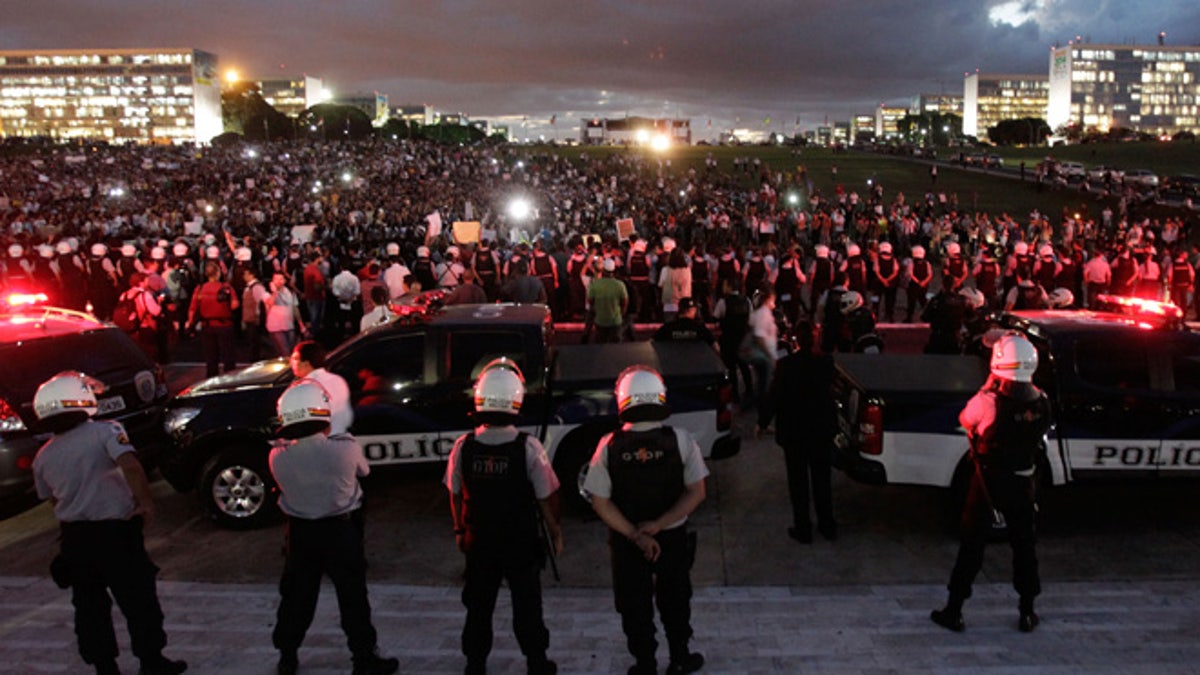
June 17, 2013: Demonstrators gather during a protest in front of the Brazilian National Congress in Brasilia, Brazil. Protesters massed in at least seven Brazilian cities Monday for another round of demonstrations voicing disgruntlement about life in the country, raising questions about security during big events like the current Confederations Cup and a papal visit next month. (AP)
BRASILIA, Brazil – Brazil's congress has shelved legislation that had been a target of nationwide protests, hours before another expected round of large-scale demonstrations on Wednesday.
The lower house of congress voted 403-9 late Tuesday to drop a measure that would have limited the investigative powers of federal prosecutors, a bill that many feared would make it harder to prosecute official corruption.
The wave of protests that hit Brazil on June 17 began as opposition to transportation fare hikes, then expanded to a laundry list of causes including anger at high taxes, poor services and high World Cup spending, before coalescing around the issue of rampant government corruption.
It has become become the largest eruption of public demonstrations Latin America's biggest nation has seen in two decades.
At many protests across Brazil in the past week, a sea of signs denounced the proposal to strip prosecutors of the ability to investigate, known as the "PEC 37" measure. Many demonstrators vowed to keep returning to the streets until it was knocked down.
"The PEC 37 only served to protect the corrupt," said Aline Campos, a 29-year-old publicist at a recent protest in Brasilia. "Society wants more effort to combat corruption, not less."
Federal prosecutors were behind the investigation into the so-called "mensalao" cash-for-votes scheme that came to light in 2005. It involved top aides of former President Luiz Inacio Lula da Silva buying off members of congress to vote for their legislation.
Before mass protests broke out on June 17, the PEC 37 legislation appeared heading to easy victory in the lower house of congress.
Social media sites used by protest organizers were calling for more big demonstrations on Wednesday, with the largest expected in the city of Belo Horizonte, where the Brazilian national football team plays a match against Uruguay in a semifinal of the Confederations Cup, the warm-up tournament to next year's World Cup. Protests are expected in several other cities as well.
